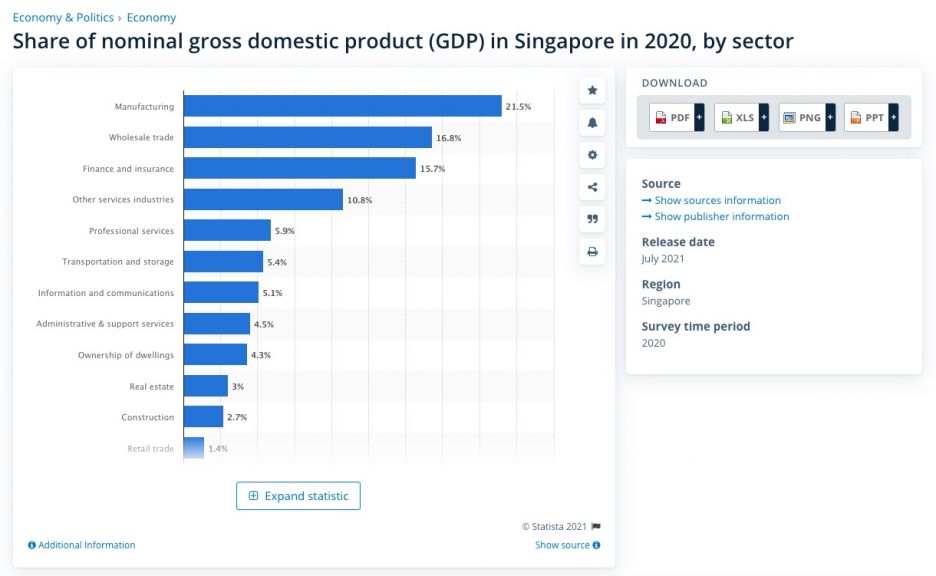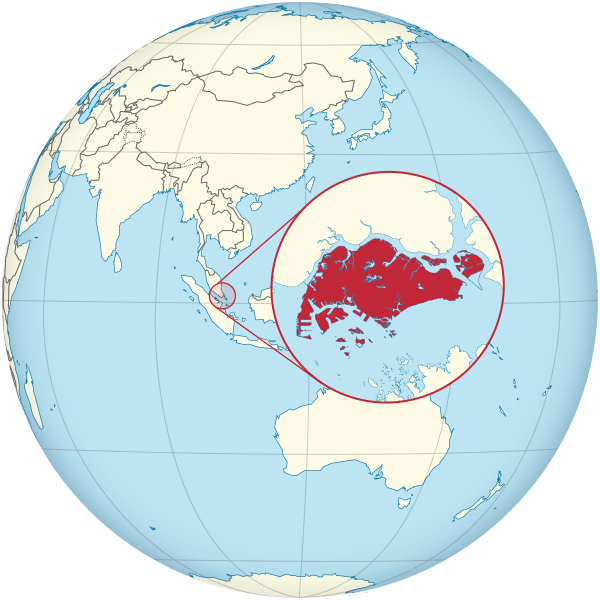Seloloving, CC BY-SA 3.0 <https://creativecommons.org/licenses/by-sa/3.0>, via Wikimedia Commons
Source:Rounding the EarthAuthor:Mathew Crawford
“Keep a snake, and the snake will eat your chicken.” -Singaporean proverb
The Southeast Asian island nation of Singapore enjoys one of the world’s best economies and standards of living. In particular, Singapore’s thriving financial sector serves as a portal between Eastern and Western economies resulting in a tremendous number of high paying jobs in the financial sector. On top of that, Singapore’s highly educated workforce succeeds in the arenas of manufacturing and trade, including in the essential sector of electronics.

Perhaps then we might note that Singapore’s population, now closing in on six million residents, depends on remaining in the good graces of all the world’s major global trading partners.
Singapore’s Early Treatment Philosophy
Numerous factors likely contributed to Singapore’s early success during the pandemic. As global statistics show, island nations face less risk of serious SARS-CoV-2 outbreaks. Singapore’s tropical climate is also conducive to an abundance of public and private spaces with open windows providing natural ventilation that keeps the aerosolized coronavirus from spreading overly rapidly.
Early on during the pandemic, Singapore adopted a strategy of hospitalizing those showing SARS-CoV-2 symptoms for immediate treatment, rather than waiting for patients to get sicker. Many patients were treated with a variety of medicines, including hydroxychloroquine. During 2020, Singapore boasted one of the best case fatality rates (CFRs) in the world at a mere 0.05%, recording only 29 deaths (5 deaths per million residents), though these statistics may be somewhat generous since Singapore does not count non-pneumonia COVID-19 deaths as COVID-19 deaths. Either Singapore did very well, or the rest of the world dramatically overcounted the COVID-19 impact due to that difference.
Another benefit for Singapore may be its relatively high proportion of people (approximately 50%) with cross-reactive T-cell immunity. This may also be the reason why 93% of SARS-CoV-2 infections there were asymptomatic—a far higher rate than in most nations, perhaps substantially decreasing spread vectors.
(La Jolla), Buggert (Karolinska), Perlman (Iowa), Le Bert (Singapore) – have all decisively shown relevant T-cell mediated immunity. Significantly, Crotty's team said: "we detected SARS-CoV-2-reactive CD4+ T cells in ∼40%–60% of unexposed individuals, suggesting pic.twitter.com/42tTV7pVPP
— Phil Edwards (@pedwards_phil) September 16, 2020
Singapore’s confidence in handling COVID-19 patients showed in the form of discomfort with the World Health Organization’s bizarrely high hydroxychloroquine doses in its nonsensical trial protocols.
Through 2020, Singapore stood out as one of the seemingly impervious nations to the COVID-19 pandemic.

Many in the media credited Singapore’s early success handling COVID-19 with surveillance as opposed to the more obvious factors including lower spread throughout the Asia Pacific rim, high levels of immunity, equatorial latitude and climate, generally high health profile, and early treatment commitment. The WHO publicly congratulated Thailand on their response, calling it, “an example of resilience and solidarity,” though the tightening of international travel, limiting of public events, and other measures looks a lot like responses in many other nations that did not succeed as well in controlling the virus. However, nations such as Vietnam given similar praise have seen explosively greater spread and death in 2021 than in 2020…
Singapore’s Vaccination Campaign
Singapore began administering its first vaccine doses in late December, 2020, steadily vaccinating its population so that now over 80% of Singaporeans have received at least one dose, and nearly 80% have received two doses. However, COVID-19 case and mortality rates are skyrocketing.
Well. Here comes Singapore.
— IM (@ianmSC) September 19, 2021
With one of the longest uninterrupted mask mandates in the world & 80+% of the entire population vaccinated, they’re nearing a new high in cases.
Just think of how excited experts & politicians are to completely ignore this & push for more mandates! pic.twitter.com/SpaXnXa3nv
While Singapore’s COVID-19 case fatality rate stood at 0.05% in 2020, it is 0.44% in 2021, an increase of nearly 800%. In all, the number of COVID-19 deaths per day is around five times as high since the outset of its vaccination campaign than it was prior. This is leading more and more Singaporeans to question vaccine efficacy and the logic of the experimental mass inoculation campaign.
Vietnam’s Tale of COVID-19, Medicine, and Vaccination: Pandemic National Case Studies
Uganda’s Tale of COVID-19, Medicine, and Vaccination: Pandemic National Case Studies
Costa Rica’s Tale of COVID-19, Medicine, and Vaccination: Pandemic National Case Studies

